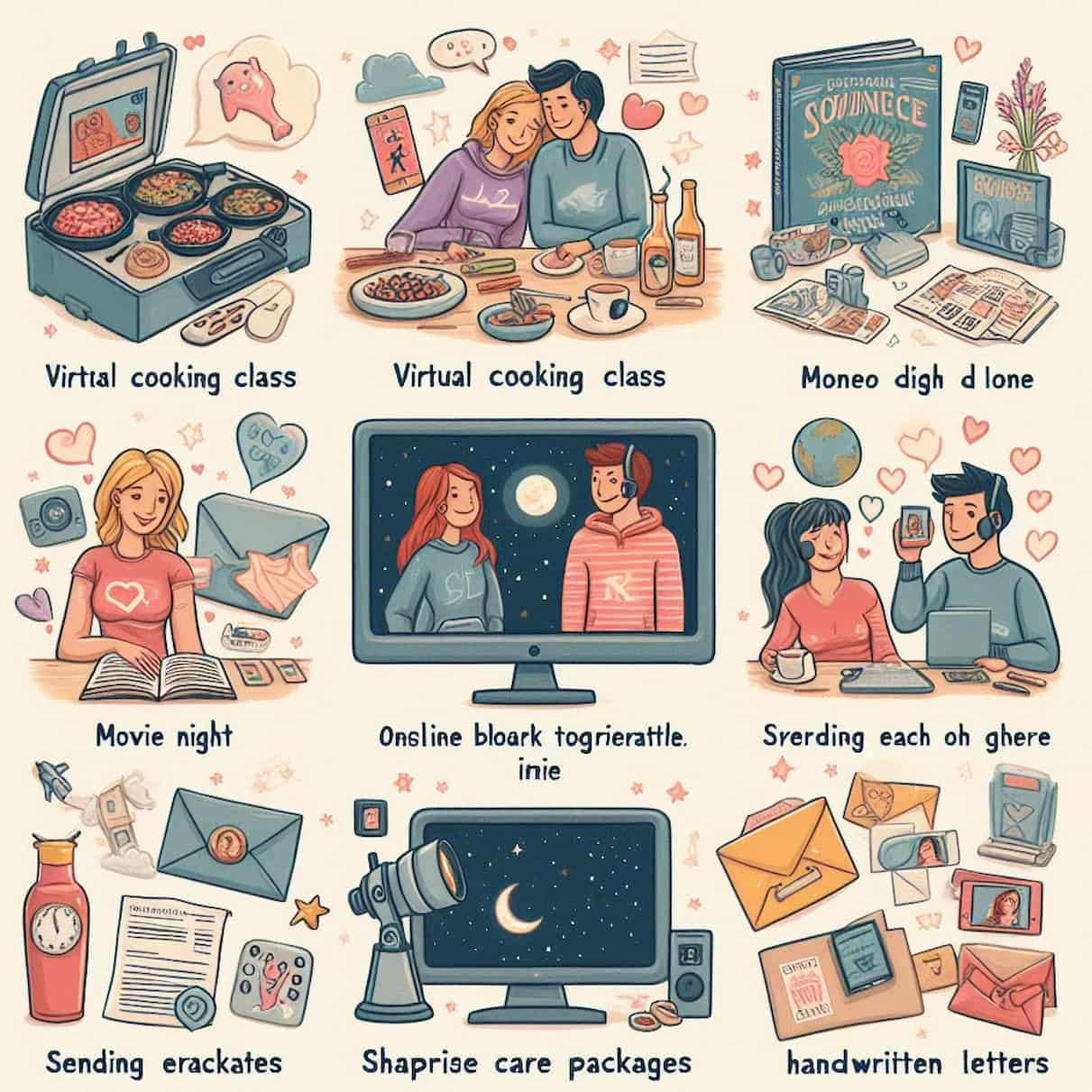Are you curious about ethical non-monogamy (ENM) and its various dynamics? Dive into this detailed article to uncover everything you need to know about this increasingly popular relationship style.
Key Takeaways:
- Ethical non-monogamy (ENM) involves consensual, transparent relationships where partners have multiple romantic or sexual connections.
- Polyamory and ENM are similar concepts, but polyamory typically emphasizes emotional connections, while ENM can encompass various relationship structures.
- ENM offers individuals the freedom to explore diverse relationship dynamics while prioritizing honesty, communication, and mutual respect.
What is Ethically Non-Monogamous?
Ethical non-monogamy (ENM) refers to relationship structures where individuals have the freedom to engage in romantic or sexual relationships with multiple partners, with the consent and knowledge of everyone involved. Unlike traditional monogamous relationships, which typically involve exclusivity and fidelity to one partner, ENM allows for openness, honesty, and consensual exploration of connections with others.
Understanding the Difference between Polyamory and ENM
While polyamory and ENM share similarities, they have distinct nuances:
| Polyamory | Ethical Non-Monogamy (ENM) |
|---|---|
| Emphasizes multiple emotional connections | Encompasses various relationship structures |
| May involve committed, long-term partnerships | Can include casual, non-committed arrangements |
| Focuses on fostering loving, intimate bonds | Allows for diverse forms of connections and intimacy |
Exploring LTR and ENM
In the context of ENM, LTR stands for “Long-Term Relationship.” ENM relationships can range from casual to long-term commitments, with partners navigating their journey together based on their individual needs, boundaries, and desires. LTRs within ENM frameworks prioritize communication, trust, and ongoing negotiation to ensure the health and sustainability of the relationship.
What If My Boyfriend Is Polyamorous?
If your partner identifies as polyamorous, it means they are open to or actively involved in multiple romantic relationships simultaneously. Communication is key in navigating such situations, as it’s essential to discuss boundaries, expectations, and feelings openly and honestly. Understanding your partner’s needs and desires can help build a stronger foundation for your relationship, whether monogamous or non-monogamous.
Is Polyamory a Healthy Relationship?
Polyamory, like any relationship style, can be healthy or unhealthy depending on how it’s practiced. When approached ethically and consensually, polyamorous relationships can offer individuals fulfillment, growth, and intimacy. However, successful polyamory requires strong communication skills, emotional intelligence, and a commitment to transparency and respect among all partners involved.
Can a Polyamorous Man Fall in Love?
Yes, polyamorous individuals are capable of experiencing deep and meaningful love for multiple partners simultaneously. Polyamory challenges the notion of romantic exclusivity by acknowledging that love is not finite and can be shared among multiple people. Just like in monogamous relationships, polyamorous individuals can develop strong emotional connections and bonds with their partners.
Deciphering FWB and LTR in ENM
| FWB (Friends with Benefits) | LTR (Long-Term Relationship) |
|---|---|
| Involves casual, non-committed sexual connections | Represents committed, long-term partnerships |
| Focuses on physical intimacy without romantic ties | Emphasizes emotional connection and mutual support |
| Based on friendship and mutual attraction | Prioritizes building a life together and future plans |
Exploring ENM in Bed
ENM in bed refers to the sexual dynamics within ethical non-monogamous relationships. This can encompass a wide range of experiences, including:
- Open communication about sexual desires, boundaries, and fantasies.
- Exploration of diverse sexual activities and practices with different partners.
- Consent, respect, and prioritizing safety and pleasure for all individuals involved.
Understanding the Concept of Polycules
In polyamorous or ENM networks, a polycule refers to the interconnected web of relationships formed between multiple partners. This can include primary partners, secondary partners, metamours (partners’ partners), and other individuals involved in the network. Visualizing a polycule can help individuals understand the complex dynamics and connections within their ENM relationships.
Exploring NSA Relationships and Monogamish Dynamics
| NSA (No Strings Attached) | Monogamish Relationship |
|---|---|
| Involves casual, sexual encounters without commitment | Allows for occasional sexual or romantic connections outside the primary relationship |
| Focuses on physical pleasure and mutual consent | Maintains emotional connection and commitment within the primary partnership |
| Emphasizes autonomy and freedom | Acknowledges the potential for outside connections while prioritizing the primary relationship |
Is Non-Monogamy Healthy and Acceptable?
Non-monogamy, when practiced ethically and consensually, can be healthy and fulfilling for individuals and their partners. However, it’s essential to prioritize communication, honesty, and mutual respect to ensure the well-being of everyone involved. While non-monogamy may not be suitable for everyone, those who embrace it can experience increased emotional intimacy, personal growth, and freedom in their relationships.
Exploring the Benefits of Ethical Non-Monogamy
| Benefits of ENM |
|---|
| Increased communication and honesty |
| Freedom to explore diverse relationship dynamics |
| Opportunities for personal growth and self-discovery |
| Expanded support networks and community connections |
| Enhanced sexual exploration and fulfillment |
Is Cheating the Same as Non-Monogamy?
While both cheating and non-monogamy involve engaging in relationships outside a primary partnership, they differ significantly in terms of consent and transparency:
- Cheating typically involves deception, betrayal, and breaking relationship agreements without the knowledge or consent of one’s partner.
- Non-monogamy, on the other hand, emphasizes openness, honesty, and consensual exploration of multiple relationships, with all parties aware of and consenting to the arrangement.
Addressing the Perception of Non-Monogamy as Narcissistic
While some may perceive non-monogamy as narcissistic or selfish, this stereotype overlooks the genuine connections, emotional growth, and community building that can result from ethical non-monogamous relationships. Individuals who embrace non-monogamy often prioritize communication, empathy, and mutual respect, challenging traditional notions of love and commitment.
How to Start Exploring Non-Monogamy
If you’re interested in exploring non-monogamy, here are some steps to consider:
- Self-Reflection: Reflect on your values, desires, and boundaries regarding relationships.
- Communication: Have open and honest conversations with your partner(s) about your feelings and interests.
- Education: Educate yourself about different forms of non-monogamy, communication strategies, and ethical guidelines.
- Community Support: Seek support from like-minded individuals, online communities, or local non-monogamous groups.
- Take It Slow: Start with small steps, set boundaries, and prioritize emotional well-being as you navigate non-monogamous dynamics.
Understanding the Concept of a Unicorn in Relationships
In non-monogamous or polyamorous contexts, a “unicorn” typically refers to a single bisexual woman
who is sought after to join an existing couple for a triad or throuple relationship. This term can carry connotations of rarity and objectification, as individuals may seek unicorns to fulfill specific fantasies or desires without considering their autonomy or preferences.
Exploring Gender Dynamics in Polyamorous Relationships
In polyamorous relationships, individuals of all genders can identify as polyamorous and engage in multiple relationships simultaneously. While stereotypes may exist about men being more inclined toward polyamory, the reality is that people of all genders can embrace non-monogamous relationship styles based on their personal preferences and values.
Understanding Group Dynamics in Polyamorous Relationships
In some cases, polyamorous relationships may involve more than two individuals forming a group dynamic. These configurations can vary widely, from triads (three-person relationships) to larger networks known as polycules. Group dynamics in polyamory require open communication, trust, and a commitment to addressing the needs and boundaries of all individuals involved.
Navigating Non-Monogamous Dynamics in Dating
When dating in non-monogamous or polyamorous circles, it’s essential to be transparent about your relationship style and intentions from the beginning. This allows potential partners to make informed decisions and ensures that everyone involved is on the same page regarding boundaries, expectations, and emotional availability.
Conclusion: Embracing Ethical Non-Monogamy
Ethical non-monogamy offers individuals the freedom to explore diverse relationship dynamics while prioritizing consent, honesty, and respect. Whether you’re interested in polyamory, open relationships, or other forms of non-monogamy, communication, self-reflection, and community support are essential for navigating this relationship style with integrity and fulfillment.
This comprehensive guide delves into the intricacies of ethical non-monogamy, covering topics ranging from relationship dynamics and communication strategies to common misconceptions and practical tips for exploring non-monogamous relationships. By providing detailed insights and practical advice, this guide aims to empower individuals to navigate non-monogamous dynamics with confidence and authenticity. Let me know if you need further clarification or assistance on any aspect of ethical non-monogamy!














